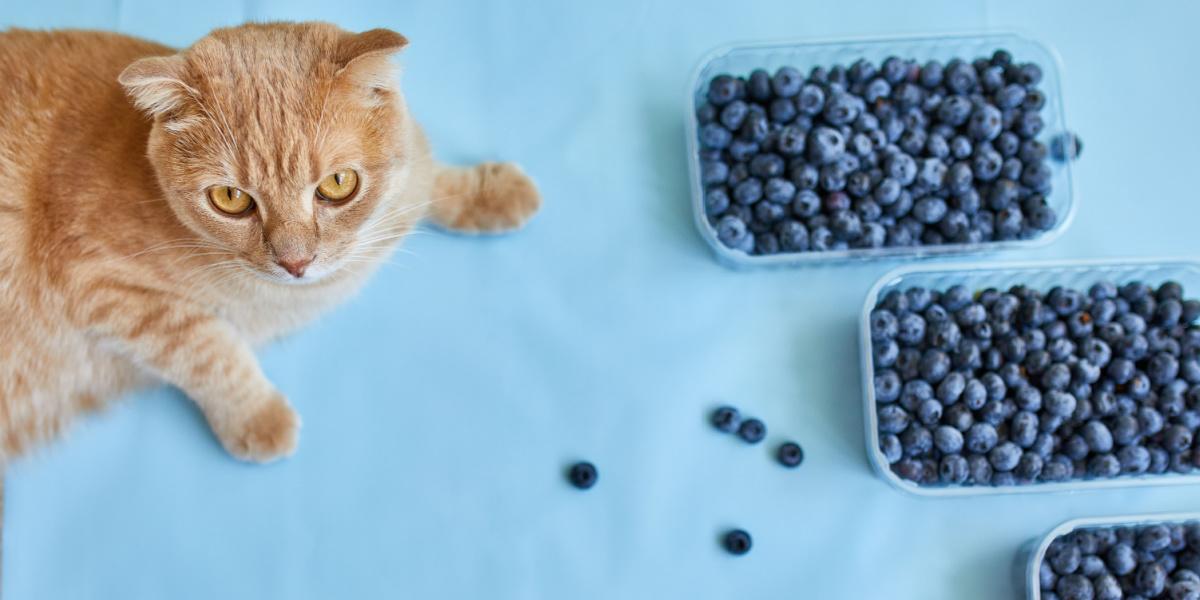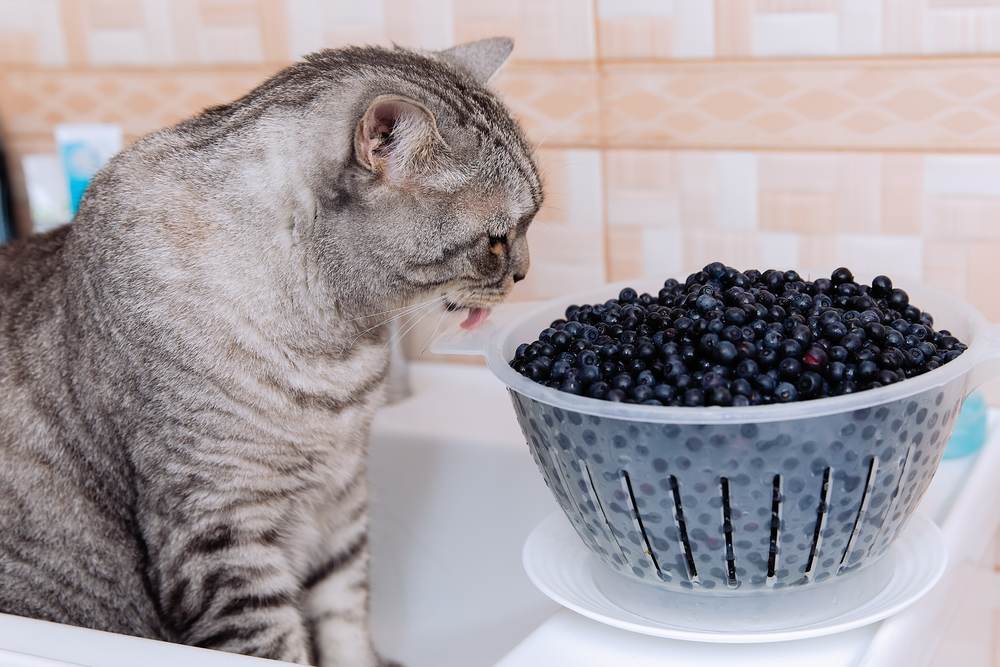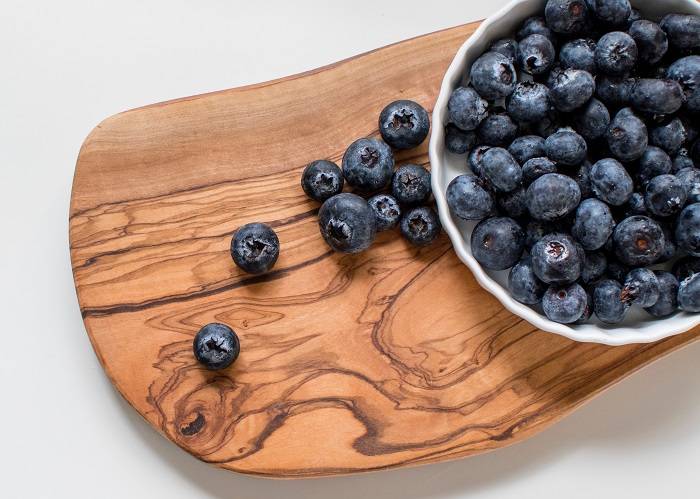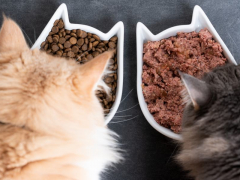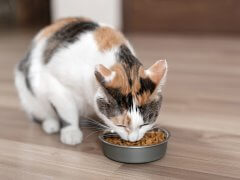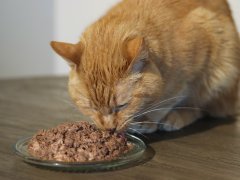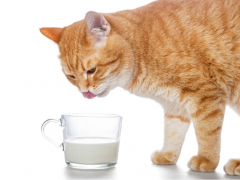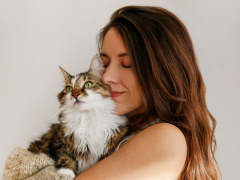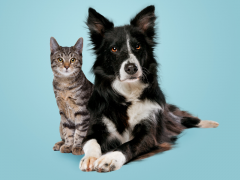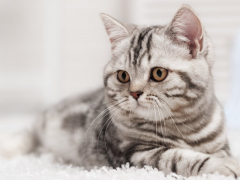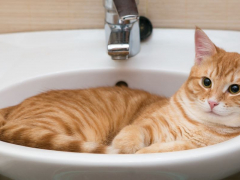Can cats join us in eating nutritious blueberries?
Does the superfood status of blueberries translate across into cats, too?
Let’s take a look at whether blueberries can be included as part of your cat’s diet, how many blueberries cats can eat a day, and everything else we need to know about this amazing fruit.
Blueberries are safe for cats as long as they are fed in small quantities, raw, and without other ingredients as an occasional treat.Quick Overview: Can Cats Eat Blueberries?
Toxic: No
Commonly Allergenic: No
Species Appropriate: No
How Often to Feed: Occasional
How Much to Feed: Supplemental
Summary of Content
Are Blueberries Safe for Cats?
After reading about how fabulous blueberries are, you’re probably even more interested in finding out whether it’s cats can have blueberries as part of a balanced diet.
The great news is that cats can eat blueberries, as long as they are raw and fresh. Don’t forget to wash them first to remove any traces of pesticides. “Aren’t cats carnivores?” I hear you say! Yes, cats are obligate carnivores– which means they need meat to survive.
However, many cat owners will agree that our cats are not above trying the odd fruit or veggies, and many love to snack on a variety of human foods!
However, there are some types of blueberries you should never feed to your cat. It’s not a good idea to feed old or moldy blueberries, as these can contain mycotoxins and alcohol. You also shouldn’t feed prepared blueberries — i.e canned blueberries, or blueberries in a pie. Plain, frozen blueberries are fine to feed to your cat, as long as you let them defrost first.
What About Blueberry Juice and Blueberry Extract?
Well, cats can have juiced blueberries, but you should take care that nothing else has been added to the juice. Most store-bought blueberry juices will be high in added sugars and preservatives, so are not suitable for cats.
You should also take care with cats that scarf their food down – blueberries can be choking hazards. You may wish to cut the blueberries in half to make them safer.
Are Blueberries Good for Cats?
Not only are blueberries safe for cats, they probably give them some health benefits, too. That’s one of the reasons they are included in many pet foods. They also make a great healthy treat that’s lower in calories than many cat treats.
Antioxidants
Blueberries may have more antioxidants than any other fruit!
Antioxidants are substances that help your body to fight damaging oxygen ‘free radicals’ – unstable compounds that damage DNA in your body cells.
Blueberries contain a family of antioxidants called flavonoids, which contain anthocyanins, one of the most powerful antioxidants.
These anthocyanins have been shown to reduce oxidative stress in humans at risk of heart disease, but it’s unlikely they’ll be of benefit to feline hearts. Cats do suffer with high blood pressure, though, and blueberries have been shown to lower blood pressure in humans.
Antioxidants also have an affect on aging, and it’s possible that they slow the onset of dementia. One review showed an impact on the ability of the older brain to learn- which may help our older cats keep mentally active into old age.
Lastly, antioxidants in blueberries have been shown to improve insulin sensitivity in people with type 2 diabetes. Cats also suffer with type 2 diabetes, so it’s possible in future that this becomes useful for aiding diabetes treatment in cats.
Urinary Health
Feline Lower Urinary Tract Disease (FLUTD) is one of the most common conditions our cats are prone to. Blueberries, like cranberries, are thought to be good for urinary health. It’s suggested that they work in the same way – by preventing bacteria like E. coli attaching to the bladder wall.
Can Blueberries Be Bad for Cats?
Although blueberries are not toxic to cats, you can have too much of a good thing, and the fiber and sugar content of blueberries can lead to an upset stomach and diarrhea if large amounts are eaten.
When you first feed blueberries to your cat, you should only feed one- you can then see if your cat likes them, and monitor them for 48 hours for any adverse effects. You might find your cat prefers their blueberry sliced open or mashed.
If your cat decides they like blueberries, and they haven’t had any signs of gut upset, how many can they eat a day?
Well, that depends on your cat’s weight and any other treats they’re receiving. A 9lb cat having no other treats can consume a quarter of a cup of blueberries without going over their calorie allowance – but we wouldn’t recommend feeding that much as it would definitely cause digestive problems.
If your cat enjoys blueberries, it’s best to stick to no more than one or two blueberries a day to avoid gut upset from all that fiber and sugar whilst still maintaining a healthy diet. Blueberries can be used in place of cat treats as a low-calorie alternative.
Final Thoughts
Blueberries are a healthy fruit with few calories and lots of nutrients. They’re safe for cats as long as they are fed in small quantities, raw, and without other ingredients as an occasional treat. They contain important antioxidants, and are even included in many cat foods!
Frequently Asked Questions
What berries are bad for cats?
Most berries are safe for cats to eat, including raspberries, strawberries, blueberries and blackberries, but you should avoid grapes, which may be toxic to cats.
Are blueberries safe for cats to eat?
Yes, blueberries are safe for cats and dogs to eat. They’re low in calories and high in water, so they can make a refreshing snack. However, you should only feed fresh or defrosted raw blueberries with no other added ingredients.
Why do cats eat blueberries?
Although most cats are fussy, many are happy to try new foods. Blueberries are good as they have a high water content, which may help to rehydrate your kitty.
